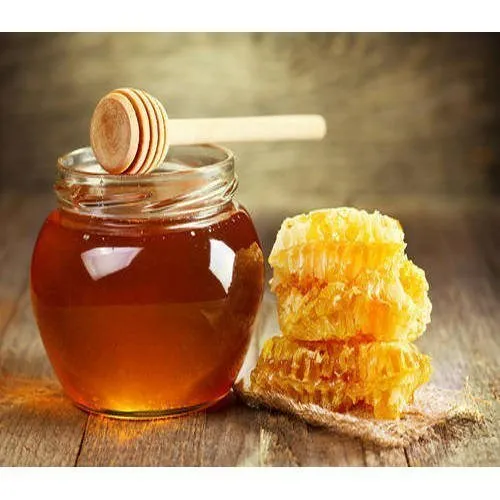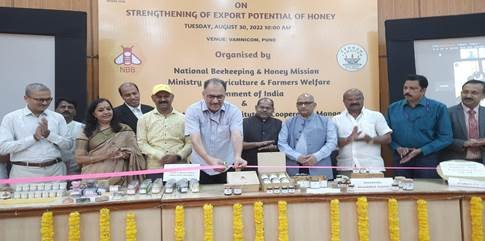National Bee Board to support stakeholders to get GI tag for different types of honey
GI Tag will boost rural sector by increasing revenue of the producers and employment in the region
Dr. Abhilaksh Likhi, Additional Secretary, Union Ministry of Agriculture and Farmers welfare, chairs a meeting on application and use of Geographical Indication (GI) of Honey at Krishi Bhawan. Dr Likhi said, National Bee Board (NBB) will support stakeholders to get GI Tag for different types of honey with support from State Governments and other stakeholders
Dr. Likhi mentioned that NBB will support stakeholders to get GI Tag for different types of honey with support from State Governments and other stakeholders. He said, GI Tagging will immensely help in uplifting the beekeeping community as after the Tag, beekeepers can further proceed for value addition in honey & other beehive products.
A geographical indication (GI) is a sign used on products that have a specific geographical origin and ensures good qualities or a reputation in the region. GI is important to proliferate the beekeeping at national and international level.
Dr. Sudhanshu, Secretary, Agricultural & Processed Food Products Export Development Authority (APEDA) briefed about the GI tagging of agricultural commodities and mentioned that GI Tagging in is based on area and species specific and it must be adopted with the prospective of export.
Dr. Prabhat Kumar, Horticulture Commissioner, Govt. of India mentioned that for holistic development of beekeeping, thrust is also needed to boost honey marketing at national as well as at international level. GI Tag will boost rural sector by increasing revenue of the producers and employment in the region. It mentioned special quality/ characteristic unique to the geographical indications. It prevents duplication of the tagged products so in another way it provides legal protection to Geographical Indications in India. This Tag is given to good quality products so it increases customer satisfaction. The good quality of the products opens the international door for the producers. With changing marketing dynamics, it is becoming necessary for all industries today to make the best use of the geo tagging service.
100 Honey FPOs/ Clusters have been identified under NBHM to promote and support the honey sector in a holistic way in the country. “Madhukranti portal” is another initiative under NBHM which is launched for online registration and developing Blockchain system for traceability of source of honey and other bee products. At present, over 20 lakh honeybee colonies have registered with NBB on Madhukranti portal. NBHM is being effectively monitoring the beekeeping activities in India.
He informed that India is currently producing about 1,33,000 Metric Tonnes (MTs) of Honey (2021-22) and India has also become one of the main honeys exporting country. The country has exported 74,413.05 MT of Honey world-wide during 2021-22.
GI Tag will boost rural sector by




